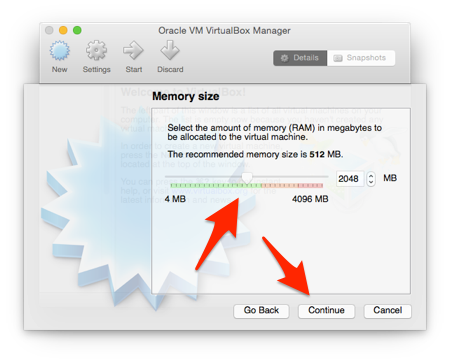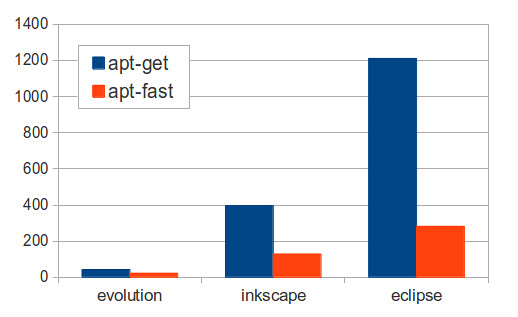I have a Dell Inspiron 1000. It currently is so slow that it takes several seconds for the screen saver to cancel out. It could probably benefit from a reformat of the hard drive and a reinstall of the OS, only Dell didn't give me a restore disc (and weren't very helpful when I called to ask for one.) I only use this computer to play music on in my room since it's pretty much too slow to use for anything else. I've been thinking of replacing the version of XP with a version of Linux since it's old (got it in February of 05) and slow and not worth paying for a new version of XP. Could anyone give any advice on this course of action? Good plan or bad? Recommended version of Linux to match the system's resources (2.2GHz Celeron, 512MB RAM with 64MB used for video, 30GB hard drive?)
THank you in advance.
First, I want to share my experience about how to make a USB pendrive of Ubuntu live iso, which is multiboot and it can duplicate itself by a bash code. I am trying to guide you to make something like that, then, as long as I'm not an expert, asking how can I make it faster(while booting, operating or cloning)?
Why is Ubuntu so slow? Update Cancel. A d b y M a n a g e E n g i n e A D S o l u t i o n s. Get ManageEngine's EventLog Analyzer. Get GDPR compliant. This log management tool offers out-of-the-box reports for GDPR compliance. 30-day free trial. D o w n l o a d a t m a n a g e e n g i n e. You dismissed this ad. The feedback you provide. RPi extremely slow download speed. Its booting from a SD card I was given with the RPi, sudo hdparm -t /dev/root is giving me 22.7 MB/sec, so its not the SD card being a bottleneck, also no other periphery plugged in. Are you using a slow mirror when updating? Do other downloads seem slow? – Dr.Avalanche Aug 23 '13 at 9:31.
First of all, you should partition your usb flash driver to two partitions by some tools like GParted. One fat32 partition and the other ext2 with the fix size of 5500MB(if you change its size then you have to change this number in the bash code too). You can find the size of the first partition by the whole size of your usb flash drive minus the size of second partition.
Second, you must download ubuntu iso image(I downloaded lubuntu 13.10 because it's faster, but I think ubuntu must work too) then copy it in the first partition(the fat32 partition.) and rename it to ubuntu.iso.

Third, run this command to install grub bootloader(you can find this command in the bash code too)
'/mnt/usb2' directory is the one that you mounted the first partition and /dev/sdc1 is its device. If you don't know about this information just use fdisk -l or Menu->Preferences->Disks to find out. Then copy the following files in their mentioned directories and reboot to usb flash(for my motherboard by pushing F12 then selecting my flash device from the 'HDD Hard' list .)
/path to the first partition/boot/grub/grub.cfg
the bash code:/path to the first partition/boot/liveusb-installer
So after that if you want to clone this flash, just reboot to the second option of grub boot loader then put another usb flash drive on and run liveusb-installer /dev/sdc. It will make another usb drive with every installed apps from the first one into /dev/sdc drive. I made this code so all of my students have the same flash drive to practice programming with c, python or sage everywhere. The speed of non-persistent (the second option in grub menu) is fine, but the fist option, which is the persistent one, is take 3-4 min to boot and after that its a little bit slow! Also, the installation(duplication) take a half an hour to complete! Is there any improvement to make it faster in any way?
any suggestion will be appreciated
1 Answer
As I said before, if lubuntu boots non-persistent, it will be faster. So I infer that if I just keep home directory persistent then the rest of folders of root directory would be in the RAM, then it must be faster. For achieving this, I changed it a little bit to boot with /home persistent and install every application after each boot, automatically. It's turned out in this way the boot time doesn't changed(booting + installing) but operating is so faster, which is great for me.

I didn't change grub.cfg at all. I changed the bash code(liveusb-installer) to label the second partition to home-rw, so the rest of folders just stay in RAM.
In the bash code: /path to the first partition/boot/liveusb-installer, just change the line of mkfs.ext2 ${destUSB}2 -L casper-rw to mkfs.ext2 ${destUSB}2 -L home-rw.
After changing liveusb-installer you can use that when you want to clone this USB drive. If you installed it before(by using above recipes) then just go to second option of grub menu(the non-persistent one) then format the second partition and label it to home-rw. After that just reboot to first option of grub menu, then become online and install any program that you wish to be there always.
After installing, copy every packages and lists to ~/apt directory by running these commands:
Now copy following files in ~/apt directory
/home/lubuntu/apt/start-up
Also change the above packages to blablabla of the install command.
/home/lubuntu/apt/autostart
Why Is Ubuntu Iso Download So Slow Windows 7
Then edit this file /home/lubuntu/.config/lxsession/Lubuntu/autostart and add the address of above file into it. Like this:
Dell Ubuntu Iso Download
Now after each reboot a nice terminal will be opened and all the packages will install as I wish! The advantage of this method over persistent root directory is the much faster operation, for instance, opening windows or running programs. But the time of cloning and booting are steal long. I will be so glad that anybody helps me to make it more professional and faster.
Comments are closed.